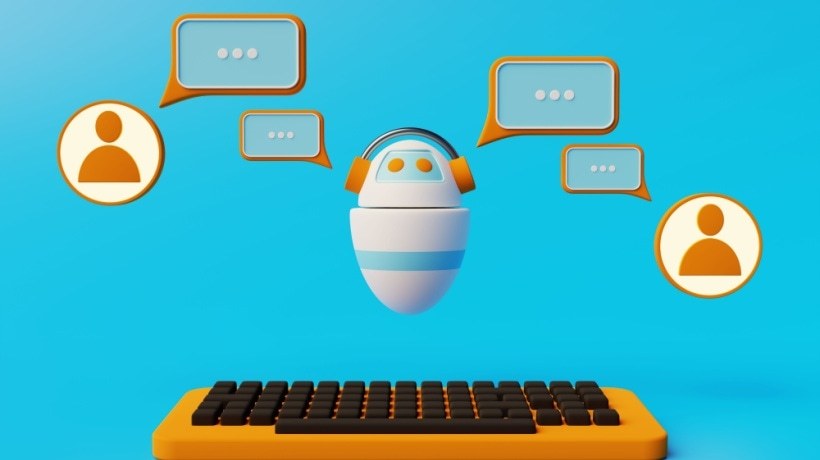
AI-Powered Practice Platforms: Enhancing Exam Readiness

AI-Powered Exam Prep For Accuracy And Confidence
In the fast-developing, technology-led new era, old ways of exam preparation are being quickly displaced by intelligent, adaptive solutions. At the center of this revolution is Artificial Intelligence (AI). AI-powered practice platforms are revolutionizing the preparation of students for standard tests such as the PTE, IELTS, CELPIP, and others. Intelligent systems provide customized learning experiences, instant feedback, and strategic guidance that greatly enhance exam readiness. Not only do they serve as study guides, but they also serve as virtual tutors, altering how students acquire content and practice for high-stakes testing.
The Limitations Of Traditional Test Preparation
Traditional prep standbys—textbooks, group lessons, and static sample tests—will likely fall short in addressing individual learning requirements. Each student possesses a different speed, ability, and weak spot. One method risks intimidating some and putting others to sleep. More importantly, it fails to provide an interactive feedback loop required to address errors in the moment or adjust difficulty levels according to student performance. This breeds inefficient study cycles, higher anxiety, and decreased confidence.
The Arrival Of AI In Learning
AI platforms take advantage of Machine Learning algorithms, data analysis, and Natural Language Processing to provide a highly responsive and adaptive learning setup. These platforms can process student performance in real time, recognize areas of knowledge gaps, and provide content that is tailored particularly for filling areas of vulnerability. For instance, if a student is consistently scoring low on the reading comprehension PTE practice test, the AI will modify subsequent questions to concentrate on this particular area of expertise and provide specific hints and examples. Secondly, AI may mimic the actual test setting, giving learners a genuine practice experience. Voice recognition for speaking modules, timed tests, and auto-marking for scoring mimic actual test situations, allowing students to overcome test anxiety and enhance time management.
Main Features Of AI-Powered Practice Platforms
Personalized Learning Paths
One of the most striking aspects of AI platforms is that they learn to accommodate the unique learner profile. According to preliminary evaluations, the AI creates a tailored study plan that then further adjusts as the learner learns. Thus, each study session is targeted and optimized.
Instant Feedback And Error Correction
A jumbled word in a speaking test or a grammatical mistake in writing is instantly pointed out by AI programs. Instant correction fuels learning and speeds up improvement.
Performance Analytics
In-depth analysis enables students to monitor their long-term progress. They are able to view what they have progressed on, what still needs to be done, and how much closer they are to achieving their target scores.
Realistic Mock Tests
Full-length practice tests with AI scoring are closely patterned after the real test pattern. This familiarizes the students with the exam pattern and also minimizes test-day surprises.
Gamification And Motivation
A majority of AI platforms also include gamified features such as the use of badges, leaderboards, and streaks to motivate the students and keep them engaged.
Changing The Role Of Educators And Institutions
AI is not replacing teachers; it’s empowering them. Teachers can utilize the insights provided by AI systems to understand students better and adjust their teaching accordingly. Rather than spending hours grading or handcrafting individual plans, teachers can now utilize more time in mentorship as well as the development of critical thinking.
To educational institutions, AI technologies introduce scalability. They can address thousands of students at once with a high level of personalization, which is impossible to achieve using conventional methods.
Real-World Impact: Case In Point
Various platforms are already showing the potential of AI for test preparation. Students who use these platforms show greater confidence, quicker learning, and significantly improved scores. AI not only prepares students for the test, it also prepares them to excel in a more competitive world.
Challenges And The Road Ahead
While there are wonderful advantages to AI, it does have some disadvantages. Data privacy, bias in algorithms, and access are significant issues to deal with. Moreover, the technology cannot be seen as a substitute for human judgment but more of an aid towards education. In the future, coupled with Virtual Reality (VR), voice recognition, and multilingual capabilities, they may become even more immersive and ubiquitous. AI tutors that recognize emotional signals or give tips on well-being are not impossible.
Conclusion
AI-powered practice platforms are a revolution in education. They’re not merely test prep platforms—they’re learning environments that change, evolve, and empower. With individualized guidance, real-time feedback, and performance monitoring, these platforms are making exam preparedness feasible on a scale never before possible. For students, that translates into fewer blind spots and bigger strides. For teachers and schools, it means wider reach and more relevance. As AI continues to expand, the future of test preparation is not smarter—it’s revolutionary.
Source link



